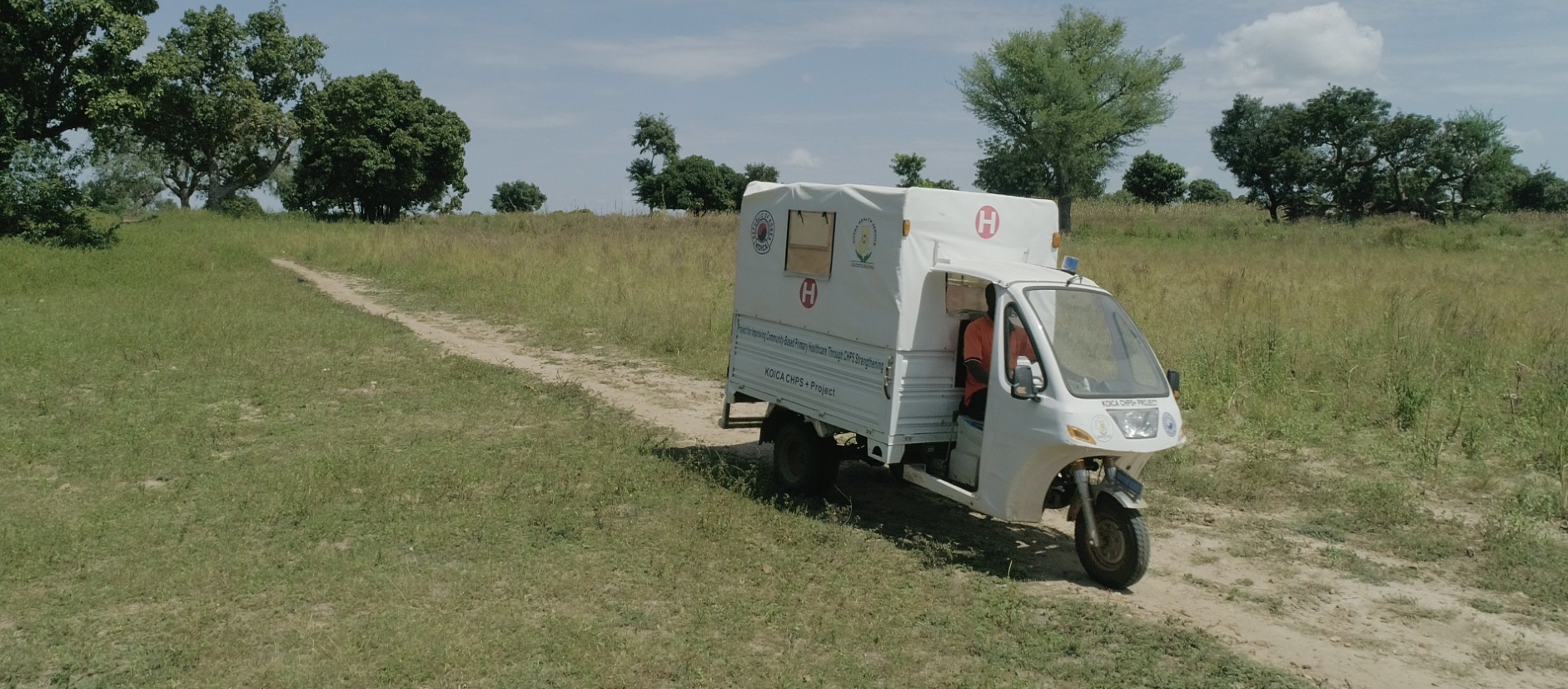
Bringing Medical Help to Rural Communities
UNOPS, May 2021
In the Upper East Region of Ghana, a three-wheeled vehicle makes its way down the bumpy rural road, raising a cloud of red dust behind it. It’s one of 80 ambulances that helps bring medical assistance to some of the most remote parts of the region.
Bordering Burkina Faso and Togo, the Upper East Region sees a great deal of cross-border movement of people, cattle and services. Nearly 90 per cent of the over 900,000 population is rural and highly dispersed across the region in more than 900 communities, often in very remote and hard-to-reach areas. For the women, men and children who live there, farming is their main source of income.
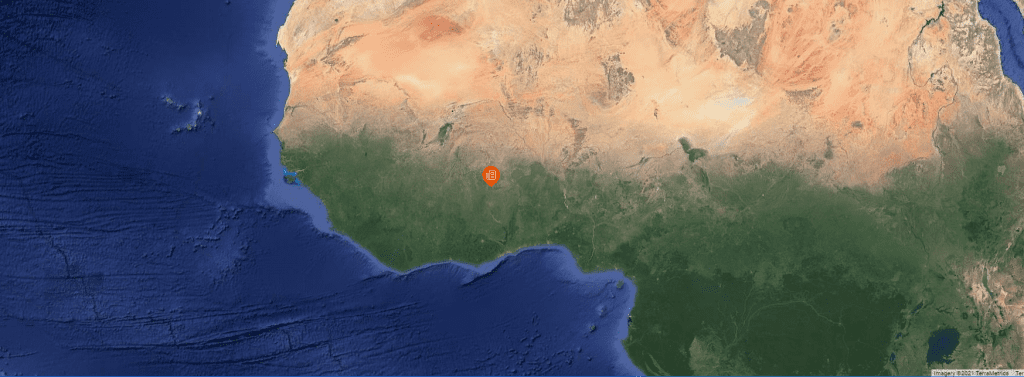
“The Upper East Region, already one of the country’s poorest, has a lot of challenges from infrastructural and resource deficits. Houses are sparsely distributed and roads are in very bad shape,” says UNOPS Project Manager, Herbert Appiah.
Most health centres also lack very basic health care equipment and personnel can be forced to turn away patients. Some health posts are themselves very dilapidated. All these make it challenging for healthcare to reach the region’s most vulnerable.
Herbert Appiah – UNOPS Project Manager
The region faces a high burden of communicable diseases such as malaria, tuberculosis and diarrhoea. More than a quarter of children under the age of five are malnourished. Located in the ‘meningitis belt’ of Africa, young people between the ages of two and 29 who live in Bolgatanga are also more vulnerable to contracting cerebral meningitis.
People in the Upper East Region receive much of their medical care from community-based health services. The Ghana Health Service’s Community-Based Health Planning and Services (CHPS) is a national strategy to help strengthen the care and services that community health workers are able to offer in some of the poorest districts, while addressing geographic barriers and bringing health services closer to people who cannot otherwise reach them.
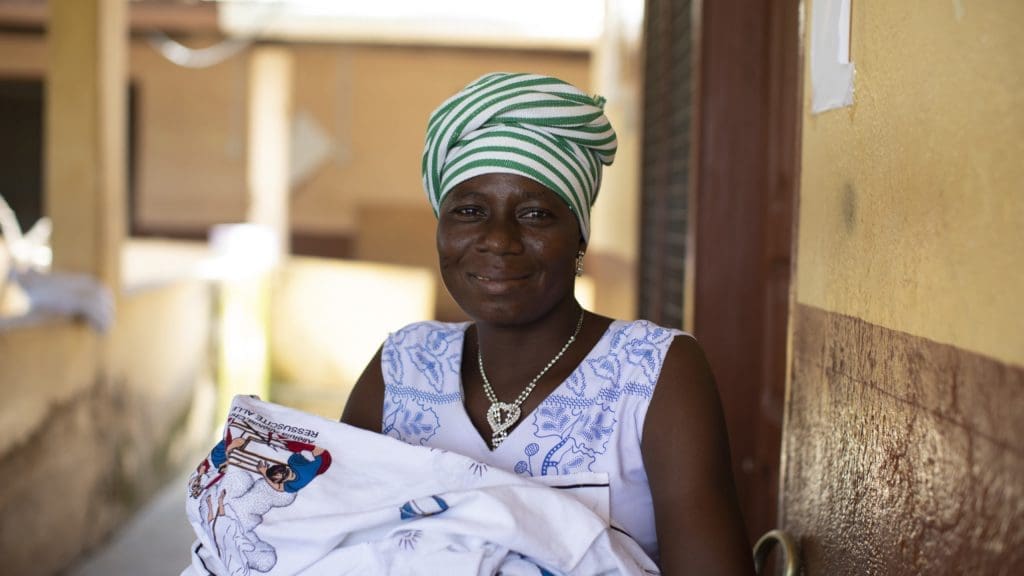
A recent project aims to empower over 700 community health volunteers by giving them access to a range of medical and non-medical equipment designed to help them serve their communities better. A special focus was placed on reaching women during their pregnancies and birth, to help ensure safe deliveries.
The key challenge with respect to maternal deaths is actually referrals, our roads are not very good, so sometimes when these women are referred, they are delayed in arrival at the hospitals where the interventions will take place.
Dr. Winfred Ofosu – Regional Director of Health Services
The poor condition of roads also prevents community health volunteers and coordinators from reaching patients for home visits.
Local health coordinator, Seidu Yahuza said: “We were having difficulty monitoring our CHPS zones and also the volunteers.”
Today, he has a motorbike and the community health volunteers he works with have bicycles to help them reach people in need and perform their responsibilities, with fewer worries of transportation. Volunteers also received items like torchlights, wellington boots and knapsacks to help reduce fatigue during long days of patient visitation. New mobile phones keep workers connected to wider services.
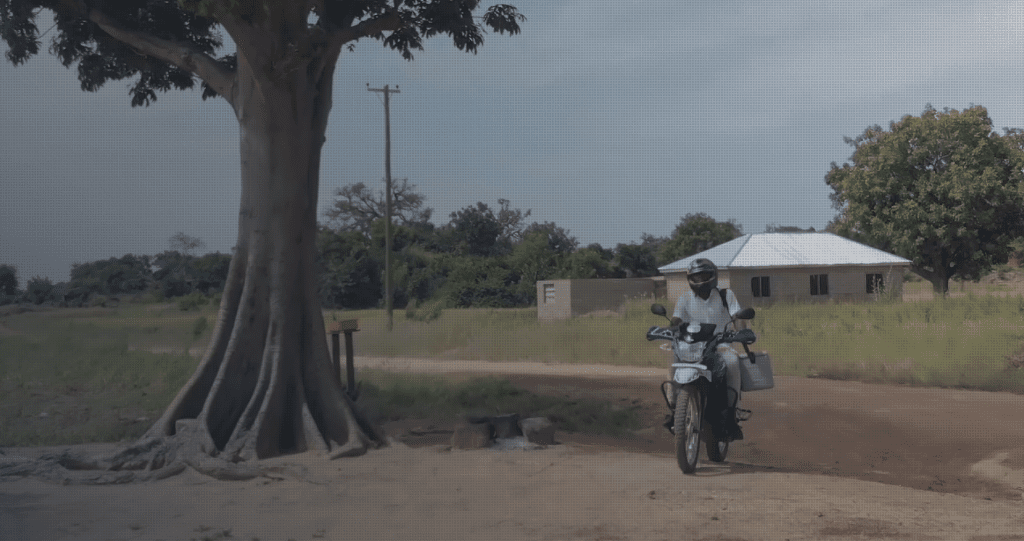
Three-wheeled ambulances, known as motorkings, are able to move over rough terrain to transport the sick from their homes in very remote areas to hospitals, where they can receive a better standard of care. The hospitals and smaller community health posts themselves have been better equipped with a wide range of medical machinery – specially selected to improve maternal monitoring, checks and deliveries, but also useful for treating a range of health issues commonly seen in the region.
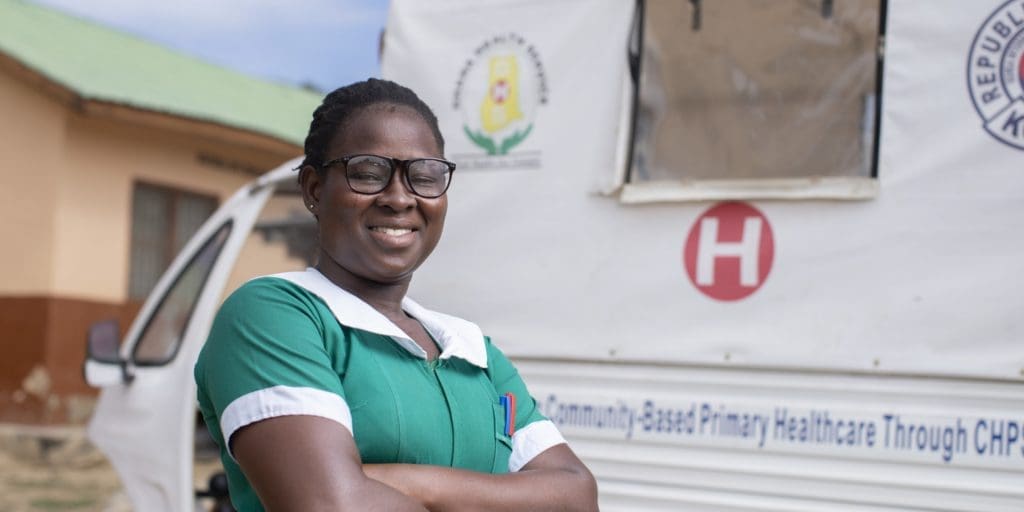
Linda Mba, a midwife in the region, explains that the project brought her health facility essential equipment: “We have delivery beds, couches for examination. We have weighing scales, ambu bags for resuscitation and we have a motorking we use in carrying our cases [patients] both to our facility and when we are referring them.”
For one new mother, the changes contributed to a more positive and secure birth experience.
“The bed helped me a lot. There is hot water there. If you deliver you can take it and the bed to sleep and feel comfortable,” she says.
It is expected that the thousands of units of equipment that have been procured and distributed are helping further engage and mobilize community members in the essential delivery of health services in the region.
About these projects
The Korea International Cooperation Agency (KOICA) partnered with UNOPS to construct and equip the college in the Volta Region as well as for the procurement and distribution of equipment in both the Volta and Upper East Regions of Ghana.
“We are committed to seeing Ghana make progress towards achieving SDG3 and believe in acting quickly with partners like UNOPS who can implement projects such as these efficiently,” says KOICA Ghana Country Director, Yukyum Kim.
“KOICA chose UNOPS as a partner to implement the construction and procurement of medical and non-medical equipment in order to ensure the quality of the project, using UNOPS expertise in project management,” he said.
“UNOPS was in charge of procuring the equipment for the KOICA project. We received high quality equipment that has improved the services that we do […] We wish that this collaboration continues,” said Bolgatanga Municipal Director of Health Services, Edmund Mohammed Nyanwuru Nellic.
The two projects took an inclusive approach, ensuring work met the unique needs of a wide range of people, are gender sensitive and encourage access by both women and men. Further, they supported livelihoods through the contracting of local workers, firms and suppliers whenever possible. Community perspectives were encouraged at every stage of the planning and implementation process of both projects to ensure local ownership.
Original article here.